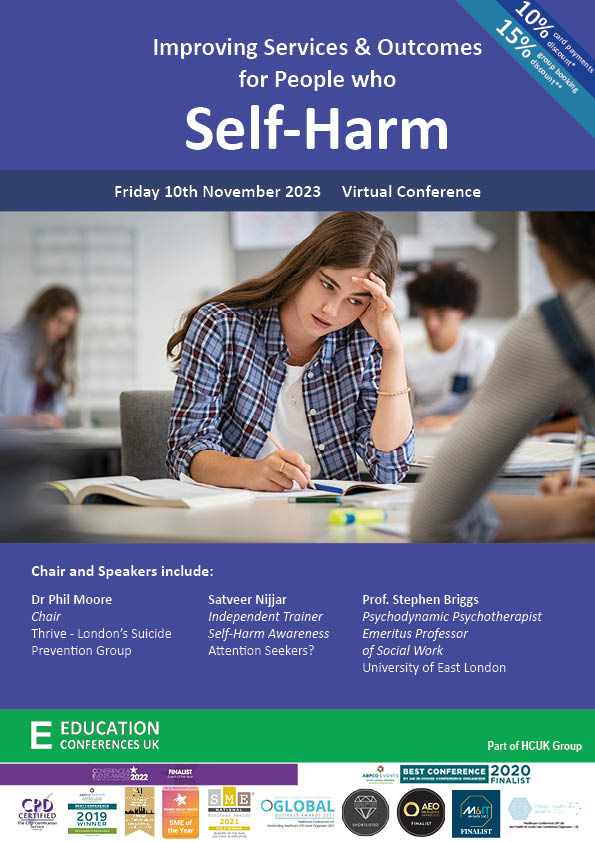Recent research shows that there has been a sharp increase in the rate of self-harm, particularly for children and
young people.
This conference focuses on improving services and outcomes for people who self harm, and implementing and monitoring adherence to the NEW NICE Guideline: Self-harm: assessment, management and preventing recurrence which was published on 7th September 2022.
a recent national study reported that 7.3% of girls aged 11 to 16, and 3.6% of boys aged 11 to 16, had self-harmed or attempted suicide at some point. The figures for 17- to 19-year-olds were 21.5% for girls and 9.7% for boys. Self-harm can occur at any age, but there is evidence that there has been a recent increase in self-harm among young people in England
Self-harm is a way of expressing very deep distress. Often, people don’t know why they self-harm.
In this conference, through case studies and expert advice we will explore how we can support people who self-harm by ensuring a compassionate approach, understanding the common causes and drivers, as well as developing safety plans with a path to recovery. With sessions dedicated to those working children in the education sector, this conference with explore the importance of early identification, how schools can improve their crisis support and the issue of self-harm amongst boys.
Learning objectives:
- Network with colleagues who are working to improve services and outcomes for people who self-harm
- Reflect on the Lived Experience of a person who has self-harmed
- Learn from outstanding practice in the management of self-harm
- Update your knowledge on national developments including the Sept 2022 National NICE Guideline Self-harm: assessment,
- management and preventing recurrence
- Examine what an effective self harm pathway should look like?
- Ensure early identification and intervention in schools
- Develop your skills in ensuring a compassionate approach to self-harm
- Implementing & Monitoring Adherence to the New NICE Guideline for Self-Harm in Practice: Assessment & Treatment Intervention and Principles
- Understand how you can improve the response to self-harm in the emergency department
- Identify key strategies for involving and engaging families of people who self harm
- Ensure you are up to date with the latest evidence
- Develop strategies to support people to be safe after self harm
- Self assess and reflect on your own practice


